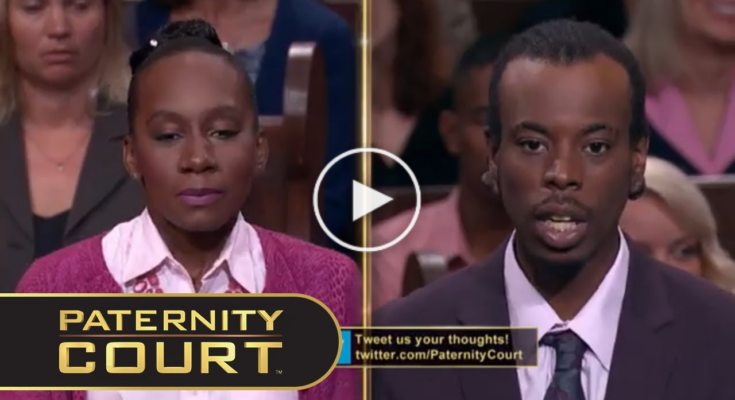The McKeever v. Arnold case offers a captivating glimpse into the world of paternity disputes, legal complexities, and the emotional aftermath for all parties involved. This article delves into the key moments of the case, featuring insights from Ms. McKeever, Mr. Arnold, and Judge Lake, shedding light on the intricacies of determining paternity and the crucial role of communication and accountability in successful co-parenting.
“He’s not mine.” At the heart of the case lies Mr. Arnold’s firm declaration that he is not the father of three-year-old Kenneth James Reeves. With unwavering conviction, Mr. Arnold’s statement resonates with the uncertainty and skepticism that often accompanies paternity disputes. This assertion launches a legal and emotional journey that explores the depths of parental responsibility.
“Why don’t you step up and be a man?” Judge Lake’s pointed query underscores a central theme of the case – the vital importance of accountability and maturity in addressing challenges. Inquiring into the tendency to involve family members during conflicts, the judge emphasizes personal responsibility and the need for open dialogue in resolving disputes.
“I didn’t want my son to grow up and not know who his father is.” Ms. McKeever’s heartfelt plea exposes the profound impact of paternal relationships. Her poignant admission of growing up without a father serves as a poignant backdrop to her unwavering determination to secure her son’s connection to his biological father, irrespective of the hurdles she faces.
“You lay down with dogs, you get up with fleas.” Ms. Henderson, Mr. Arnold’s aunt, candidly illustrates the dangers of dishonesty and miscommunication. Employing a vivid metaphor, she illuminates the far-reaching consequences of disseminating false information and its potential to exacerbate already tense situations.
“You’re standing here with your life on the line.” Judge Lake solemnly articulates the legal gravity of the case, stressing the implications of neglecting child support obligations. His words underscore the necessity of comprehending and respecting the legal framework in paternity disputes and the responsibilities it entails.
“I will step up to the plate.” A pivotal moment arises when Mr. Arnold commits to embracing his role as a father figure to Kenneth. His declaration signals a significant turning point, marking a newfound willingness to take on fatherhood and co-parenting responsibilities.
“Work towards positive co-parenting.” Judge Lake’s guidance encapsulates the overarching message of the case: the significance of effective co-parenting despite adversities. The court underscores the necessity of financial contributions in establishing a stable environment for the child and fostering harmonious co-parenting.
Learning from the McKeever v. Arnold Case The McKeever v. Arnold case serves as a profound study in navigating the complexities of paternity disputes, underscoring the essence of accountability, communication, and co-parenting. Amidst the emotional turmoil and legal intricacies, the case highlights the enduring impact of open dialogue, understanding, and a shared commitment to nurturing a positive environment for the child. Judge Lake’s poignant words echo long after the case’s resolution: “Don’t ever let anybody control your fate, your life, and your destiny.” This sentiment underscores the profound significance of active involvement and shared responsibility in co-parenting journeys. The McKeever v. Arnold case is a powerful reminder that despite adversities, the path to successful co-parenting is paved with honesty, empathy, and a genuine dedication to the child’s well-being.



